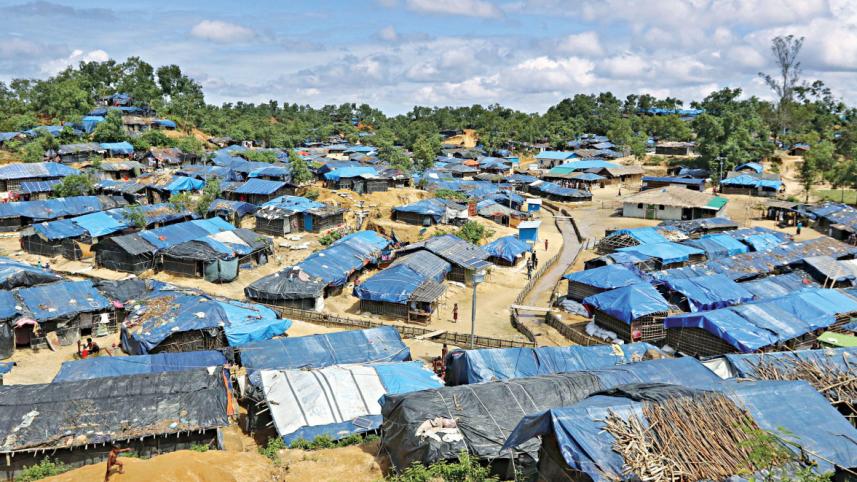Let the world share our burden

The United Nations special rapporteur on the situation of human rights in Myanmar, Tom Andrews, has categorically said that Bangladesh cannot and should not carry the burden of Rohingya refugees alone. Rather, he called for the world community to share the huge responsibility, taking into cognisance the ground reality that the Bangladesh government needs and deserves a stronger international partnership in handling the situation. We feel that he could not have been more discerning when commenting that a stronger commitment of resources is required for the Rohingya refugees and the host communities.
There is no denying that the sooner the world realises that the cause of this crisis and its solution are not in Bangladesh but in Myanmar, the easier it would be to act in the right direction. Bangladesh has done its parts; now it's the world's turn to reciprocate. We are happy to note that the UN special rapporteur has seen the contribution of Bangladesh in this regard, and acknowledged it in the following words, "Bangladesh saved untold numbers of lives when it opened its arms and hearts to (the) Rohingya people who survived these most unspeakable horrors inflicted on them by the Myanmar military. All who value human rights owe Bangladesh a debt of gratitude."
Since the day Bangladesh opened its borders to the Rohingyas, who are genuine nationals of Myanmar fleeing from the genocide launched by its military, police and armed goons, more than 700,000 of them took shelter on Bangladesh's soil. The immediate burden of providing a roof over their head, food and water fell on Bangladesh's shoulders. The government and the people welcomed these unfortunate people with open arms completely on humanitarian grounds. The Bangladesh government started to address the issue through all available diplomatic channels, including keeping the UN updated on a day-to-day basis. But the Myanmar government remained incommunicado almost on every occasion.
As the refugee camps in Cox's Bazar and the surrounding areas became overcrowded with the burgeoning Rohingya population, which began to threaten our environment and law and order situation, the Bangladesh government built shelter homes in Bhashan Char, where about 19,000 refugees have been relocated so far.
Following his visit to the island, the UN emissary expressed his satisfaction at what he saw there and said that he would continue to work with Bangladesh on this major issue. He, however, urged the Bangladesh government to ensure availability of essential services at the new location before relocating more refugees. He welcomed the commitments made in the memorandum of understanding (MoU) between the Bangladesh government and the UN, and urged that they be put into practice.
It is good news that the UN special rapporteur said, before his departure on Sunday, that he would act to push for a stronger, more coordinated international response to this crisis, including exerting pressure on Myanmar and to hold the military junta fully accountable for this crisis. It is also significant that he put emphasis on the safe, sustainable and voluntary return of the Rohingyas to their homeland in Myanmar.



 For all latest news, follow The Daily Star's Google News channel.
For all latest news, follow The Daily Star's Google News channel.
Comments